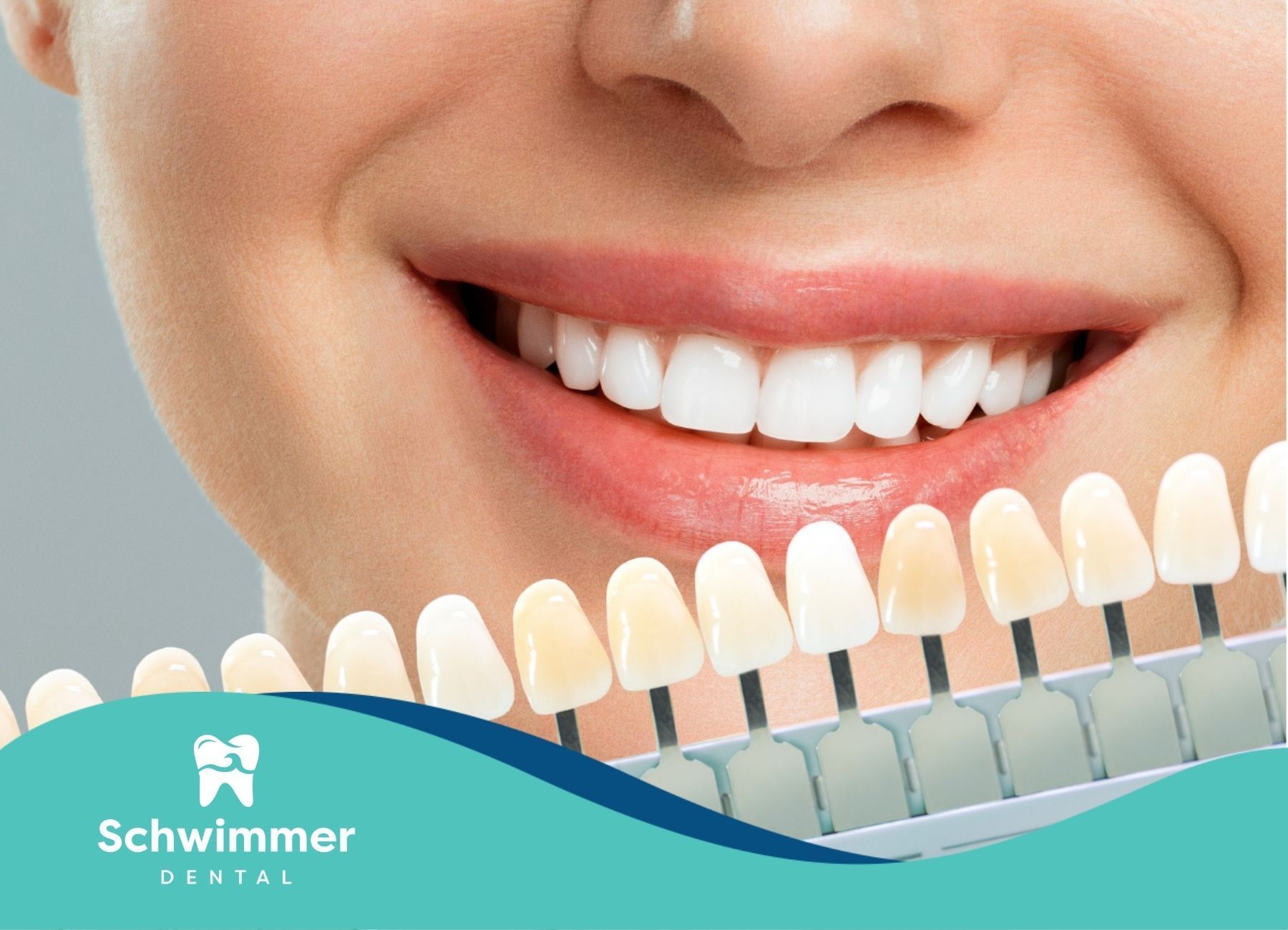The Power of Nutrition: Best Vitamins for Teeth and Gums
A bright smile isn’t just about white teeth—it’s about strong enamel, healthy gums, and a mouth that feels great. While brushing and flossing are critical, your oral health depends on the nutrients you put into your body. Without essential vitamins, your teeth can weaken, and your gums may become more prone to disease.
I’ve seen patients who were diligent with their dental care but still experienced bleeding gums or weak enamel. In many cases, simple dietary changes made all the difference. Ensuring you get enough Vitamin C, D, and Calcium can go a long way in protecting your teeth and gums for years to come.
Why Vitamins Matter for Your Teeth and Gums
Your teeth and gums are just like the rest of your body—they need proper nourishment to stay strong. Vitamins and minerals play an essential role in maintaining your oral health by:
✅ Strengthening
tooth enamel to prevent cavities
✅ Supporting gum health and reducing inflammation
✅ Aiding in the repair of damaged tissue
✅ Helping fight bacteria that cause plaque buildup
✅ Promoting saliva production, which naturally protects your teeth
Without the right nutrients, your gums can become inflamed, your enamel can weaken, and you may become more susceptible to oral infections. The good news? A well-balanced diet rich in these essential vitamins can significantly improve your dental health.
The Best Vitamins and Minerals for Oral Health
To maintain a healthy mouth, it’s crucial to ensure you’re getting enough of these key vitamins and minerals.
1. Vitamin C: The Key to Healthy Gums
Vitamin C is a powerhouse for gum health. It plays a major role in collagen production, which helps keep your gums strong and prevents them from bleeding or receding. A lack of Vitamin C can lead to swollen, inflamed gums and even gum disease.
How Vitamin C Helps:
- Strengthens gums and prevents bleeding
- Speeds up wound healing in the mouth
- Reduces inflammation and helps fight gum infections
Best Sources of Vitamin C:
- Citrus fruits (oranges, lemons, grapefruits)
- Strawberries and kiwis
- Bell peppers and leafy greens
- Tomatoes and broccoli
If you’re prone to gum sensitivity, increasing your Vitamin C intake can make a noticeable difference in your oral health.
2. Vitamin D: The Sunshine Vitamin for Strong Teeth
Vitamin D is essential for calcium absorption. Without enough of it, your body can’t effectively use the calcium you consume, which can weaken your teeth and bones. Low Vitamin D levels have been linked to a higher risk of tooth decay and gum disease.
How Vitamin D Helps:
- Supports calcium absorption to strengthen teeth
- Helps prevent cavities and enamel erosion
- Reduces inflammation in the gums
Best Sources of Vitamin D:
- Sunlight (15–20 minutes a day)
- Fatty fish (salmon, tuna, mackerel)
- Egg yolks and fortified dairy products
- Mushrooms
If you live in an area with limited sunlight, you may need a Vitamin D supplement to maintain strong teeth and healthy gums.
3. Calcium: The Building Block of Tooth Enamel
Calcium is one of the most important minerals for oral health. It helps build strong teeth and fortifies enamel, which protects your teeth from decay. Without enough calcium, your teeth can become weak and prone to cavities.
How Calcium Helps:
- Strengthens tooth enamel to prevent erosion
- Supports jawbone health and keeps teeth in place
- Helps with proper nerve and muscle function in the mouth
Best Sources of Calcium:
- Dairy products (milk, cheese, yogurt)
- Leafy greens (kale, spinach, collard greens)
- Almonds and sesame seeds
- Fortified plant-based milks (almond, soy, oat)
Pairing calcium-rich foods with Vitamin D will ensure your body absorbs it properly.
4. Vitamin A: The Secret to Healthy Saliva Production
Vitamin A isn’t just good for your eyesight—it’s also essential for keeping your mouth moist and your gums healthy. It helps produce saliva, which naturally washes away bacteria and food particles, preventing cavities and gum disease.
How Vitamin A Helps:
- Supports healthy saliva production to cleanse the mouth
- Strengthens gum tissue and prevents infections
- Helps repair damaged tissues in the mouth
Best Sources of Vitamin A:
- Carrots, sweet potatoes, and pumpkin
- Leafy greens (spinach, kale)
- Liver and eggs
- Mangoes and apricots
If you often experience dry mouth or frequent cavities, increasing your Vitamin A intake might be beneficial.
5. Phosphorus: A Hidden Hero for Strong Teeth
Phosphorus works alongside calcium to build and protect tooth enamel. It helps keep your teeth strong and resistant to decay.
How Phosphorus Helps:
- Works with calcium to rebuild and strengthen enamel
- Helps maintain the structure of teeth and bones
- Prevents tooth loss and decay
Best Sources of Phosphorus:
- Meat, poultry, and fish
- Nuts and seeds
- Dairy products
- Whole grains and beans
Ensuring a good balance of calcium and phosphorus is key to keeping your teeth strong.
6. B Vitamins: Protecting Against Gum Disease
B vitamins, especially B6 and B12, help prevent gum inflammation and reduce the risk of gum disease. They also support overall oral tissue health.
How B Vitamins Help:
- Reduce the risk of gum disease and inflammation
- Help prevent mouth sores and ulcers
- Support overall oral tissue health
Best Sources of B Vitamins:
- Meat, poultry, and fish
- Eggs and dairy
- Whole grains and legumes
- Leafy greens and bananas
If you suffer from frequent mouth sores or gum issues, you may need to increase your intake of B vitamins.
Can Supplements Help?
While getting vitamins from whole foods is always the best option, sometimes supplements can be beneficial—especially if you have dietary restrictions or trouble absorbing certain nutrients.
If you’re considering supplements, talk to your doctor or dentist to determine which ones are right for you.
Nourish Your Smile from the Inside Out
Taking care of your oral health goes beyond just brushing and flossing—it’s about nourishing your teeth and gums from the inside out. By ensuring you get enough Vitamin C, D, A, and essential minerals like calcium and phosphorus, you’re giving your mouth the support it needs to stay healthy.
If you’ve been dealing with dental issues despite a good hygiene routine, take a closer look at your diet. A small change in nutrition could make a big difference in your smile’s health and longevity.
At Schwimmer Dental, we believe in a comprehensive approach to oral health. Our expert team is here to guide you with professional dental care, personalized nutrition tips, and preventive treatments that keep your smile in top shape.
Whether you need a routine check-up or more advanced care, we’re here to help. Schedule an appointment today and take the first step toward a healthier, stronger smile!
FAQs
What vitamins are essential for healthy teeth and gums?
The most important vitamins for oral health include Vitamin C for gum health, Vitamin D for calcium absorption, Calcium for strong enamel, and Vitamin A for saliva production.
Can taking supplements improve my dental health?
Yes, while a balanced diet is the best source of nutrients, supplements can help fill nutritional gaps, ensuring you get enough essential vitamins for strong teeth and gums.
How does Vitamin D help prevent tooth decay?
Vitamin D plays a crucial role in helping your body absorb calcium, which strengthens tooth enamel and protects against cavities and tooth decay.
Sources:
- https://penndentalmedicine.org/blog/vitamins-for-teeth/
- https://now.tufts.edu/2024/07/25/something-chew-you-sink-your-teeth-those-gummy-vitamins
- https://www.ada.org/resources/ada-library/oral-health-topics/nutrition-and-oral-health
- https://pmc.ncbi.nlm.nih.gov/articles/PMC10285321/
- https://www.mouthhealthy.org/nutrition/8-non-dairy-calcium-rich-foods-for-your-teeth



